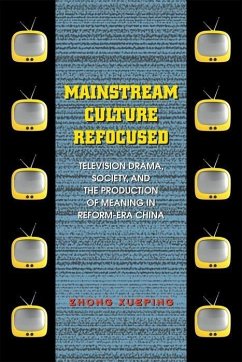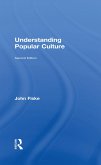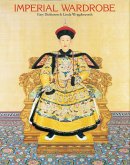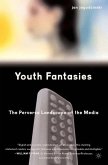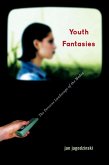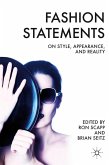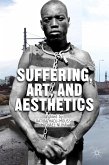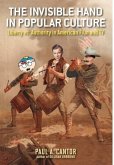Serialized television drama (dianshiju), perhaps the most popular and influential cultural form in China over the past three decades, offers a wide and penetrating look at the tensions and contradictions of the post-revolutionary and pro-market period. Zhong Xueping's timely new work draws attention to the multiple cultural and historical legacies that coexist and challenge each other within this dominant form of story telling. Although scholars tend to focus their attention on elite cultural trends and avant garde movements in literature and film, Zhong argues for recognizing the complexity of dianshiju's melodramatic mode and its various subgenres, in effect "refocusing" mainstream Chinese culture. Mainstream Culture Refocused opens with an examination of television as a narrative motif in three contemporary Chinese art-house films. Zhong then turns her attention to dianshiju's most important subgenres. "Emperor dramas" highlight the link between popular culture's obsession with emperors and modern Chinese intellectuals' preoccupation with issues of history and tradition and how they relate to modernity. In her exploration of the "anti-corruption" subgenre, Zhong considers three representative dramas, exploring their diverse plots and emphases. "Youth dramas'" rich array of representations reveal the numerous social, economic, cultural, and ideological issues surrounding the notion of youth and its changing meanings. The chapter on the "family-marriage" subgenre analyzes the ways in which women's emotions are represented in relation to their desire for "happiness." Song lyrics from music composed for television dramas are considered as "popular poetics." Their sentiments range between nostalgia and uncertainty, mirroring the social contradictions of the reform era. The Epilogue returns to the relationship between intellectuals and the production of mainstream cultural meaning in the context of China's post-revolutionary social, economic, and cultural transformation. Provocative and insightful, Mainstream Culture Refocused will appeal to scholars and students in studies of modern China generally and of contemporary Chinese media and popular culture specifically.
Hinweis: Dieser Artikel kann nur an eine deutsche Lieferadresse ausgeliefert werden.
Hinweis: Dieser Artikel kann nur an eine deutsche Lieferadresse ausgeliefert werden.

